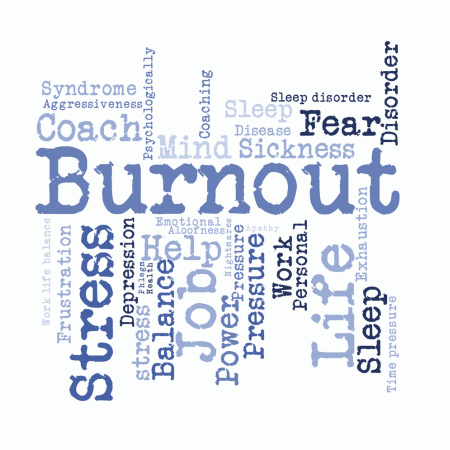“Molly Flexwell helps exhausted caregivers reclaim their energy, self-worth, and joy through practical tools and kindness-led living”
You didn’t come into mental health nursing to feel hollowed out by the end of every shift. You came for people, the quiet courage of patients, the small wins, the way compassion can change a room. If you’ve been whispering “I can’t” under your breath, if emotional exhaustion and detachment have been creeping in, you are not broken, you are human. The good news? Passion can be rekindled. The moment you name burnout, you loosen its grip. The moment you choose small acts of self-care, clearer boundaries, open teamwork, thoughtful time management, and curious professional development, you begin bringing your compassion back to life.
This guide is for you, the nurse who holds space for everyone else and needs an honest, practical pathway back to yourself. We’ll keep it simple, kind, and doable. We’ll weave through evidence-informed strategies seasoned with lived wisdom, so you can sustain your mental health, protect your energy, and rediscover why you chose this work in the first place.

Why Burnout Happens (and Why It’s Not Your Fault)
Burnout in mental health nursing is not a personal failure; it is an occupational risk in a high-demand, high-emotion environment. Long shifts, moral distress, chronic under-resourcing, and continual exposure to trauma can pull your nervous system into a survival loop. Your brain adapts by blunting feelings (hello, quiet detachment) and conserving energy (there’s that “I can’t”). This is physiology trying to protect you.
The Early Signs You Shouldn’t Ignore
Burnout is easier to reverse when you catch it early. Watch for:
- Emotional signals: Snapping at small things, feeling numb, cynicism, dreading the roster.
- Cognitive signs: Brain fog, difficulty concentrating, decision fatigue, rumination.
- Physical flags: Heavy fatigue, headaches, gut flares, disrupted sleep, frequent colds.
- Behaviour shifts: Withdrawing from teammates, skipping breaks, procrastinating documentation, overworking to “catch up.”
- Meaning drift: The work that used to feel significant now feels pointless or impossible.
A 60-second self-check:
- How am I feeling, honestly?
- Where do I feel it in my body?
- What is one thing I can do in the next hour that is kind and doable?
- Write your answer on a sticky note. Place it inside your ID holder. Repeat tomorrow.
Top 5 Burnout Solutions for Mental Health Nurses (That Actually Work)
Prioritise self-care you will actually do. Two minutes of box breathing between patients. A short walk to the stairwell window. A guided body scan on your commute. Tiny, consistent acts regulate the nervous system better than heroic but infrequent fixes.
Build supportive teamwork. Advocate for regular huddles, shared language for stress, and “tap-in/tap-out” moments when someone is overwhelmed. Community is a treatment.
Use simple time management. Task triage, protected micro-blocks, and compassionate planning reduce chaos.
Pursue professional development with curiosity. Short courses, clinical supervision, reflective practice groups, learning reignites meaning.
Set clear boundaries (and keep them). Boundaries are not walls; they’re the rails that keep your work humane and sustainable.
These five, used together, create a protective web around your energy and empathy. They are the foundations of sustainable compassion in nursing.

Self-Care That Fits Inside a Shift (Not Just on Your Day Off)
Traditional “self-care” can sound like a weekend retreat you don’t have. Let’s bring it to the ward:
90-second reset (any time): Inhale for 4, hold for 4, exhale for 6, pause for 2. Do four rounds. This resets your vagal tone and clears your head.
Body scan at the sink: While washing your hands, sweep attention from scalp to soles; unclench your jaw; drop your shoulders; soften your belly.
Sensory anchor: Choose one sensory ritual per shift—peppermint oil dabbed on the wrist, or a cool sip of water you actually taste.
Micro-journalling: Jot three lines at meal break: What went well? What felt hard? What support helped?
Transition ritual (post-shift): Shoes off at the door, deep breath, quick stretch. Say aloud: Work is done; body is safe; home is here. Your nervous system loves clear endings.
Nurse-friendly self-care mindset: small, reliable, no guilt. The point is to interrupt chronic stress, not add another item to your perfection list.
Boundaries That Protect Your Heart (With Scripts You Can Use)
Healthy boundaries prevent emotional leakage and reduce compassion fatigue. Try these gentle, professional scripts:
- When asked to take an unsafe extra load:
“I want to help, and I’m at safe capacity right now. What can we re-prioritise together?” - When a colleague debrief turns into offloading:
“I care about this, and I’ve got ten minutes before I need to do a medication round, shall we book a proper check-in after handover?” - When staying late becomes the norm:
“I’m finishing on time today to stay well for tomorrow’s shift. Let’s flag outstanding items for the early handover.” - When you need supervision, not stoicism:
“I’m noticing some carry-over stress. Could we schedule reflective supervision this week?”
Boundaries are a kindness to your future self and to your patients. In mental health nursing, they also model healthy relational limits, therapeutic in itself.
Teamwork That Lightens the Load
A supportive team is one of the strongest antidotes to burnout in healthcare.
- Open communication: Build a norm of brief, honest check-ins: What’s one pressure point? What’s one win?
- Tap-in/tap-out: If you notice a colleague flooding, offer a five-minute swap on observations or phone cover.
- Positive reinforcement: Catch people doing something well and name it: “Your de-escalation today was textbook.”
- Peer debriefs: Ten minutes post-incident with a simple structure—facts, feelings, needs, next steps.
- Kind conflicts: Disagree on process, never on person. Use “I” statements and be specific about impact and requests.
When the team shares the emotional labour, nobody drowns.
“Kindness is how we keep the light on when the shift runs long, one steady breath for ourselves, one softer word for each other, and the courage to pause so we can care again tomorrow.”
The Wellness Hive For Caregivers Collections
The Wellness Hive for Caregivers Collections/ Shop is a gentle corner of the internet devoted to the people who hold everything together. It is a shop designed for caregivers, nurses, shift workers, and supporters who are giving so much of themselves and want simple ways to refill their own cup. Inside, you will find kind, practical wellness tools that make everyday care a little lighter and a lot more loving.
What we offer
- Caregiver self-care tools: gratitude journals, affirmation cards, reflection prompts, and gentle grounding practices that fit into real life.
- Planners and diaries: week-to-view wellness diaries, daily routines, and printable planners that help you protect your time and energy.
- Mindful downloads: instant digital guides for breathing, grounding, and journalling, plus caregiver checklists and calm-in-a-minute rituals.
- Beautiful gifts: Art Nouveau and stained-glass inspired designs in soft, uplifting colours that bring a little joy to a long day.
- Resources for burnout prevention: practical strategies for boundaries, rest, and recovery, created with caregivers in mind.
Who it is for
- Family caregivers who are balancing appointments, emotions, and the unexpected.
- Nurses and healthcare workers seeking quick, repeatable resets between shifts.
- Mothers and parents who want five calming minutes that actually work.
- Anyone feeling overwhelmed and ready for small steps back to clarity and calm.
How our products help
- Reduce decision fatigue with ready-to-use checklists, routines, and prompts.
- Support mental health with simple grounding exercises and gratitude journalling.
- Build resilience through tiny, consistent practices that fit into busy days.
- Make self-care visible with beautiful tools that invite you to pause and breathe.
What makes us different
- Created by a caregiver for caregivers, with lived insight and compassionate design.
- Evidence-informed practices translated into everyday language and easy routines.
- A kindness-led philosophy that treats rest and support as necessary, not optional.
- Art that soothes: bees, florals, and stained-glass motifs that feel hopeful and calm.
How it works
- Digital items arrive instantly so you can start today.
- Physical items are printed with care and packed as if they were for a friend.
- Clear, human support if you ever need help choosing or using a product.
Our promise
Molly Flexwell helps exhausted caregivers reclaim their energy, self-worth, and joy through practical tools and kindness-led living. We will never add to your overwhelm. Every product focuses on clarity, usefulness, and kindness, so you can move through your day with more steadiness and a little more light.
